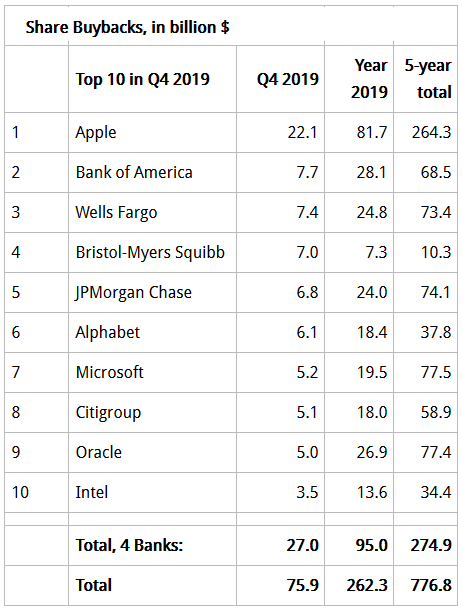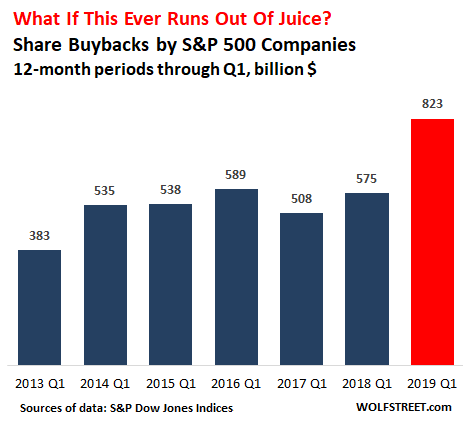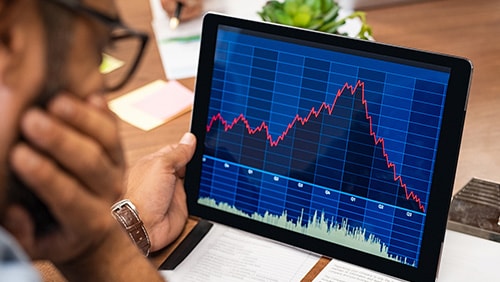Casino Share Buyback
The holders of the new shares should be entered into the register of shareholders before the proceeds of the issue are applied to buy back the shares. Step 3 – post buyback. Any shares purchased using distributable profits may be cancelled or held in treasury, under section 724 of the Act. Crown's Barangaroo casino can't yet open for gambling. It is a departure from the traditional approach taken by class action lawyers. Instead of the usual claim for damages, Maurice Blackburn is asking the court to consider ordering Crown to give shareholders a means to sell at a price that reflects the company’s fair value. Mar 18, 2020 As the coronavirus pandemic wreaks havoc on travel and the U.S. Tourism industry pleads for public help, one of the world’s largest timeshare companies plans to use the opportunity to buy back more.
Related Services
In recent months there have been numerous high profile share buyback announcements in the news. Various household name companies have confirmed their intentions to buy back shares from shareholders –Lloyds Bank for about £1bn, Ryanair for €750m and Qantas for almost £300m. These are generally portrayed by the media as very positive moves, but unless you're well versed in the mechanics of buybacks it's not always obvious why.
Share buybacks essentially involve a company purchasing its own shares from one or more of its shareholders. Whilst the concept of a company buying its own shares might seem strange (in fact in most cases the shares it buys are immediately cancelled - but they can be held in treasury in certain circumstance where they continue to exist but carry no rights), buybacks can be an extremely attractive option for both the buying company and the selling shareholder. They are a very useful tool that can be used by companies of varying shapes and sizes.
In this article, to give you a better understanding of how buybacks work, we'll be considering:
- the reasons why share buybacks are so useful
- the basic principles and processes that must be adhered to when implementing a buyback
- the ways in which a company can (and, crucially, cannot) fund a buyback
It's important to appreciate that both public and private companies can buy back their shares – note thatthe headline examples above all relate to public companies – but here we will be focusing on share buybacks by private limited companies.
Why are share buybacks so useful?
There are many reasons why a company might wish to buy back shares from shareholders, but the most common reasons for implementing a buyback are typically:
- To buy out departing shareholders. When a shareholder wishes to sell their shares it is often advantageous for there to be a buyback, perhaps because the departing shareholder cannot find a willing buyer or because the existing shareholders want to retain control of the company (but cannot afford to buy the shares individually – in a buyback company money is used to make the purchase). Buybacks are also common where an employee shareholder is leaving the company and is required to sell their shares back to the company.
Another example that we are starting to see is where a company has raised funds through a crowdfunding raise, grown significantly and now wishes to buy out the crowd investors.
- To return surplus cash to shareholders in a tax efficient way. If the company has been profitable and is sitting on significant cash reserves, a buyback can be a more effective way to put cash back in the hands of investors than declaring dividends. This is because in many cases the purchase price for a share buyback will be treated as capital rather than income, which can be advantageous for shareholders.
- For strategic reasons. There are various circumstances in which a management team will consider implementing a buyback. One benefit is that in certain situations the effect of the buyback is to increase the price per share and improve the company's price/earnings ratio. A buyback can also be seen as a vote of confidence by management in the company's future performance, because they are choosing to buy back shares rather than invest in capital expenditure or acquisitions.

What is the basic process for implementing a buyback?

The general rule is that companies are permitted to buy back shares as long as:

- there are no restrictions prohibiting this in the company's articles of association; and
- the buyback is done in a manner which complies with the Companies Act 2006.
It is often assumed that a buyback will be very straightforward, particularly in a company where there are only a handful of shareholders and the parties are keen to take a pragmatic approach.
However, the reality is that share buybacks are quite heavily regulated and there is a significant danger that a buyback implemented without taking appropriate advice will be void (i.e. of no legal effect). Clearly this could have disastrous consequences and require substantial unraveling because the company will effectively have failed to buy back the relevant shares, which will still be owned by the selling shareholder. This impacts not only on share ownership but also potentially on the company's historic accounts.
Every buyback will differ slightly, but essentially the process typically involves:
- Considering whether HMRC clearance is required to confirm whether the purchase price is to be treated as income or capital.
- Checking the company's articles of association to ensure that there are no restrictions that need to be taken into consideration – for example, pre-emption rights (rights of first offer for shares to be sold), consent of certain classes of shareholders (for example preference shareholders), or consent of investors or founder shareholders. If necessary, the articles might need to be amended before the buyback can take place.
- Checking shareholders' agreements or the like for any consents required or restrictions.
- Confirming that the relevant shares are fully paid.
- Obtaining consent from the relevant percentage of voting shareholders (in most cases shareholders holding shares with more than 50% of the votes voting in favor of the resolution will be adequate – what is termed an ordinary resolution, but in some case the Company's Articles of Association may require a higher threshold (for example a special resolution which requires a 75% + voting threshold)) and ensuring that every eligible shareholder has been provided with a copy of the buyback agreement.
- The directors of the company will need to look at the most recent set of annual accounts along with any relevant management accounts to ensure that (if applicable) there are sufficient distributable profits out of which to pay for the shares. It may also be necessary for the Company to produce more up to date interim accounts. If not, further advice will need to be sought as to whether the company can pay for the shares out of capital – although this is a much more extensive process.
- The company and the seller entering into a share buyback agreement. This will include details such as the number and type of shares being sold, the price of the shares and how completion is to take place.
- Completing form SH03, which needs to be stamped by HMRC (note that the Company will normally have to pay stamp duty of 0.5% on the price paid for the shares) and filed at Companies House, along with form SH06 if the shares are also to be cancelled. The Company's register of members will also need to be amended.
- The selling shareholder will need to declare the transaction to HMRC in their next tax return and ensure that any tax arising is paid accordingly.
- The company's accounts and records will need to be updated post buyback.
What are the company's options for paying for the shares?
In the majority of scenarios, the company will purchase the shares using its distributable profits. In addition it will need the actual cash to pay for the shares. Mechanically this is the simplest option.
Another option is for the company to issue new shares at a premium to new or existing shareholders to finance the buyback.
It is also possible to buy back shares using the company's share capital, but the process is more complex, which tends to result in additional timescales and cost.
In limited circumstances, where the company is only proposing to buy back a small number of shares for a very low value, this can be paid for in cash provided that in any financial year the amount paid does not exceed the lower of £15,000 and the nominal value of 5% of its share capital. This right must however expressly be included in the company's articles of association.
Just as important, however, are the ways that a company cannot purchase its shares under a buyback. The payment must not as a rule of thumb take the form of a loan to the company from the selling shareholder. Similarly, as a rule of thumb, an asset cannot be transferred to the seller as payment in kind.
The shares must be paid for in full in cash at the time they are transferred, which means that payment cannot generally be made in instalments. One alternative approach is to have multiple completions over a period of time, where the seller is contractually bound on day one to sell their shares over a future time period, but there are inherent risks with this approach because the directors cannot be certain that there will be available distributable profits to fund the buyback or having the requisite cash to pay for the shares at the future point in time.
Casino Share Usa

If shares are to be sold to the company using multiple completions it may be possible for the seller to waive their share rights for the shares to be sold on day one. There are tax concerns when using multiple completions so tax advice should be sought up front. One particular point to note is that HMRC do not usually allow any conditions to apply to the future completions (other than possibly the Company having enough distributable profits out of which the purchase the relevant tranche of shares at the time of the relevant completion) if capital treatment is being sought by the seller for the buyback of the shares.
Another misconception is that where the company does not have sufficient available distributable profits or capital to fund the buyback the company can simply borrow funds from a lender to pay for shares under a buyback. If the company has insufficient available distributable profits or capital to fund the buyback the legal requirements at law to make the buyback will not have been satisfied, borrowing from a third party lender will not change the underlying position and the transaction will be void.
How much should the company pay for the shares?
This will be a commercial decision between the company's directors and the selling shareholder. The purchase price could therefore be anything from the nominal value of the shares (or indeed less – it is possible for shares to be gifted back to a company) to their market value or above market value, although in the latter scenario the directors will have to justify their decision with reference to their duties to act in a way which promotes the success of the company for the benefit of its shareholders as a whole.
What other issues commonly arise on a share buyback?
Other than the form and timing of payment for the shares, two of the most common issues which arise on a share buyback are the terms and conditions that can be included in the buyback agreement and whether the selling shareholder can loan their share proceeds back to the company.
The general principle is that the terms of the buyback are up for negotiation between the selling shareholder and the company, provided they do not breach the relevant sections of the Companies Act 2006.

A selling shareholder may wish to include a clause that entitles them to further payment if the company is sold in the near future. This is often known as an 'anti-embarrassment' clause. The problem with this approach is that under a buyback agreement the shares must be paid for in full at the time of transfer.
One solution may be for the selling shareholder to enter into a separate anti-embarrassment agreement with the remaining shareholders, although there are concerns this may seek to circumnavigate the buyback laws (as all the cash for the shares will not have been paid in full on completion) and it may make the buyback void. Alternatively, they could be given a new redeemable share which carries no rights other than an entitlement to a share of the proceeds in the event that the company is sold in the near future for a minimum price. None of these routes is tried and tested in the Courts and they run the risk the buyback could be voided.
Thinking about implementing a share buyback?
For the reasons outlined above, buybacks are very useful but very easy to get wrong. It can be difficult to work out whether or not a company is in a position to proceed with a buyback.
It's therefore important that you get expert legal, tax and accounting advice at the outset to ensure that you structure the buyback correctly and manage the expectations of all involved.
For more information please contact Karl Taylor, Senior Associate, on 01392 687730 or karl.taylor@michelmores.com or Dan Partridge, Solicitor, on 01392 687479 or Dan.Partridge@michelmores.com.
Casino Share Buyback Programs
This article is for general information only and does not, and is not intended to, amount to legal advice and should not be relied upon as such. If you have any questions relating to your particular circumstances, you should seek independent legal advice.